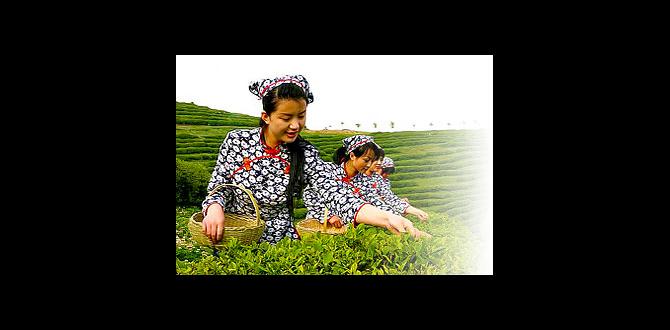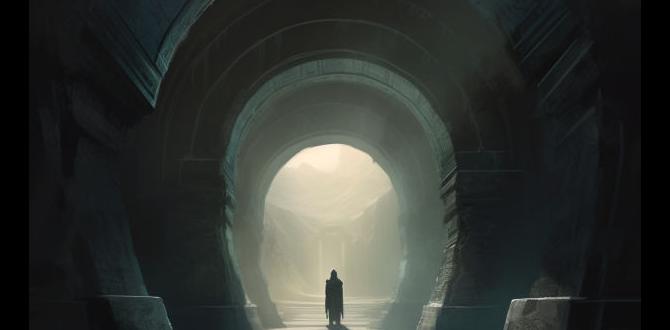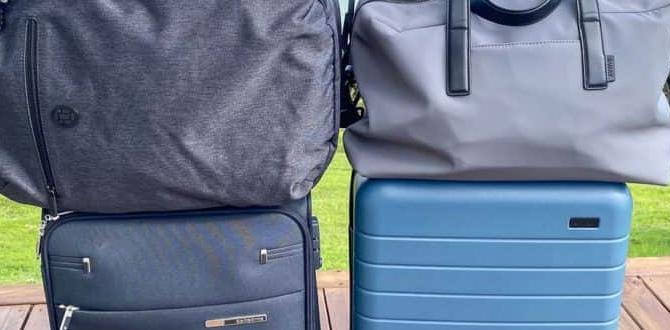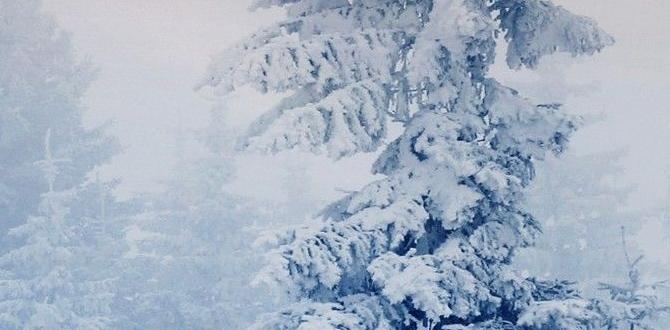Algeria travel safety revolves around staying informed about specific regional advisories, particularly concerning remote border areas. For most tourists, popular destinations like Algiers, Oran, and Constantine are generally considered safe with standard travel precautions.
Understanding potential risks and knowing where to focus your exploration ensures a comfortable and secure journey. This guide will help you navigate Algeria with confidence by highlighting key areas and providing practical safety tips for a memorable adventure.
Planning a trip to Algeria is an exciting prospect, filled with ancient history, vibrant culture, and stunning landscapes. However, like any travel destination, it’s wise to be informed about the local situation to ensure your visit is as smooth and safe as possible. Many travelers wonder about the best places to explore and any areas that might require extra caution.
Don’t worry, this guide is designed to give you clear, easy-to-understand advice so you can plan your Algerian adventure with peace of mind. We’ll walk you through essential information, from generally safe zones to areas where heightened awareness is recommended, ensuring your journey is both comfortable and unforgettable.
Understanding Algeria’s Safety Landscape
Algeria, the largest country in Africa, offers a diverse range of experiences, from the bustling capital of Algiers to the Sahara Desert’s serene beauty. The overall safety situation for tourists is generally good in major cities and well-traveled tourist routes. However, like many countries with vast territories and diverse geography, there are specific regions where caution is advised due to geopolitical factors or limited infrastructure. Staying informed is the most crucial step in ensuring a safe trip.
General Travel Advice for Algeria
Before diving into specific zones, let’s cover some universal travel safety tips that apply to Algeria and many other destinations:
Know before you go: Routinely check your country’s foreign travel advice. For example, the U.S. Department of State provides detailed country-specific information.
Stay connected: Keep your smartphone charged and consider purchasing a local SIM card for easier communication and data access.
Inform someone: Let a friend or family member back home know your itinerary and check in regularly.
Respect local customs: Dress modestly, especially when visiting religious sites, and be mindful of local traditions and laws.
Be aware of your surroundings: Pay attention to what’s happening around you, particularly in crowded areas.
Secure your valuables: Use hotel safes and be discreet with expensive items.
Generally Safer Zones for Tourists
Most international visitors to Algeria focus on its major urban centers and established tourist attractions. These areas are accustomed to hosting travelers and generally benefit from a greater security presence.
1. Algiers (El Djazair)
The capital city, Algiers, is a vibrant hub of activity offering historical sites, bustling markets, and a lively atmosphere. Key attractions include:
The Casbah of Algiers: A UNESCO World Heritage site, this ancient medina is a labyrinth of narrow streets and traditional houses. While exploring, it’s advisable to stick to well-trodden paths and consider hiring a local guide.
Notre Dame d’Afrique: A stunning basilica offering panoramic views of the city and the Mediterranean Sea.
Algeria National Museum: Houses a rich collection of Algerian history and art.
Promenades & Coastal Areas: Areas like the waterfront offer pleasant strolls.
Safety in Algiers: Algiers is generally safe for tourists who practice standard precautions. Be mindful of pickpocketing in crowded markets (souks) and on public transport. It’s always best to use reputable taxis or ride-sharing services arranged through your hotel. Avoid walking alone late at night in less familiar neighborhoods.
2. Oran (Wahran)
Located on the Mediterranean coast, Oran is Algeria’s second-largest city and a cultural and economic center. It’s known for its lively atmosphere, Spanish influences, and beautiful coastline.
Santa Cruz Fort: Offers fantastic views over the city and the bay.
Place du 1er Novembre 1954: The main square, perfect for people-watching and enjoying the city’s ambiance.
The Grand Mosque: An important religious and architectural landmark.
The Corniche: A scenic coastal road.
Safety in Oran: Similar to Algiers, Oran is a relatively safe city for tourists. Exercise caution in busy public spaces and be aware of your belongings. The tourist infrastructure here is well-developed, making it easier for visitors to navigate.
3. Constantine (Qasantina)
Known as the “City of Bridges,” Constantine is perched dramatically on a rocky plateau with a river gorge running through it. It’s a city steeped in history and natural beauty.
The Sidi M’Cid Bridge and suspension bridge: Iconic landmarks offering breathtaking views.
The Mellah Slimane: A historic Jewish quarter.
Roman Ruins: Nearby sites like the Timgad ruins (though a day trip, often accessed from Constantine) showcase impressive Roman architecture.
Safety in Constantine: Constantine is considered a safe destination for tourists. Its dramatic landscape means many areas are naturally well-defined. Standard safety practices, especially regarding personal belongings in busy areas, are recommended.
4. Coastal Towns and Resorts
Areas along the Mediterranean coast, such as Tlemcen (known for its rich history and Andalusian architecture) and coastal resorts, are popular with both domestic and international travelers and are generally considered safe with normal precautions. These areas often have a more relaxed atmosphere.
5. Tourist Hubs in the Sahara Desert
For those seeking desert adventures, popular tourist gateways like Tamanrasset and the Hoggar Mountains region attract many visitors. These areas require more specific planning and local guidance.
Djanet: A gateway to the Tassili n’Ajjer National Park, famous for its prehistoric rock art and stunning desert landscapes.
Tassili n’Ajjer National Park: Requires organized tours with experienced local guides.
Safety in Desert Regions: While major tourist routes in the Sahara are generally safe, it’s absolutely crucial to travel with reputable tour operators who are experienced in desert navigation and safety. Independent travel in remote desert areas is not recommended due to extreme conditions, lack of infrastructure, and potential security concerns in border regions. Always stay with your group and follow your guide’s instructions.
Areas to Exercise Caution or Avoid
Algeria’s vastness means certain regions present higher risks due to their proximity to unstable borders, potential for terrorism, or general remoteness. It is imperative to stay updated on government travel advisories and local conditions.
1. Border Regions
Due to their proximity to neighboring countries with varying security situations, certain border areas are considered high-risk and are generally not recommended for tourism. These include:
All Borders with Libya, Niger, Mali, and Mauritania: These regions can be volatile. The remoteness and potential for cross-border criminal activity or militant presence make them unsafe for tourists.
Eastern Borders with Tunisia and Morocco: While these borders are more frequently crossed for trade and legitimate travel, venturing too close to remote border crossings without specific reason or local guidance is not advised.
Why to Avoid: These areas can be subject to heightened security operations, movement of armed groups, and smuggling activities. For independent travelers, the lack of infrastructure and emergency services poses significant risks.
2. Remote, Unpopulated Inland Areas (Far from Tourist Routes)
Vast stretches of the Sahara Desert and undeveloped interior regions, far from established tourist routes and settlements, can be risky due to:
Harsh Physical Environment: Extreme temperatures, sandstorms, and lack of water can be life-threatening.
Lack of Infrastructure: No roads, communication, or emergency services.
Potential for Banditry or Criminal Activity: While rare on established tourist paths, remote areas can sometimes be exploited.
It is crucial to distinguish between organized desert tours to recognized beauty spots (like Tassili n’Ajjer) and venturing into vast, unmapped desert regions.
3. Areas with Political Unrest or Demonstrations
Like any country, Algeria can experience localized protests or demonstrations. While often peaceful, it’s advisable to avoid large gatherings and any areas where political tensions seem high. Monitor local news and heed any warnings from your accommodation or local contacts.
Getting Around Safely in Algeria
Navigating within Algeria is generally straightforward if you use reliable methods.
Transportation Options and Safety Tips:
Air Travel: For long distances between major cities (e.g., Algiers to Tamanrasset), internal flights are efficient and safe. Book through official airline websites or reputable travel agents.
Trains: Algeria has a rail network connecting major cities. It’s a comfortable and scenic way to travel, though not as extensive as road networks. Trains are generally safe, but always keep an eye on your luggage.
Taxis: In cities, use metered taxis from official stands or book through your hotel. Avoid unmarked taxis, especially at airports or stations, as they can overcharge or pose safety risks.
Rental Cars: Renting a car is an option, especially for exploring areas around cities. Ensure you have the correct permits and insurance. Driving in Algeria can be challenging due to road conditions and local driving habits. Stick to main roads and avoid driving at night outside of major urban areas.
Guided Tours: For exploring sensitive regions or for a more in-depth experience, booking tours with reputable local companies is highly recommended. They provide experienced guides, safe transportation, and valuable local knowledge.
Travel Insurance and Emergency Preparedness
For any international trip, comprehensive travel insurance is non-negotiable.
What to Look for in Travel Insurance:
Medical Evacuation: Essential for remote areas or if serious illness occurs.
Trip Cancellation/Interruption: Covers unforeseen events that might force you to cancel or cut short your trip.
Lost or Stolen Belongings: Provides coverage for personal items.
Ensure your policy covers all activities you plan to undertake, especially any adventure travel.
Emergency Contacts:
Local Emergency Services: Dial 19 for police, 14 for fire services, and 10 for ambulance.
Your Embassy or Consulate: Keep the contact information for your country’s embassy or consulate in Algeria readily available. They can offer assistance in emergencies.
Traveling with Specific Needs: Comfort and Reliability
For some travelers, ensuring comfort and dignity during long journeys or specific travel situations is a priority. This includes considerations for personal care items.
Managing Personal Care Needs While Traveling
Whether you are traveling for leisure, business, or with family, managing personal care needs can add to travel stress. For example, traveling with young children often means carrying child diapers, while adults may need adult diapers for long flights, road trips, or simply for added peace of mind and convenience.
Packing Essentials:
Child Diapers: Pack more than you think you’ll need, as availability and brands can vary. Consider travel-sized packs or reusable cloth options for lighter packing if feasible.
Adult Diapers/Incontinence Products: If you require adult diapers, opt for highly absorbent, discreet options designed for comfort during extended periods. Brands that offer good leakage protection and a secure fit are ideal for minimizing worry. Many brands offer specialized products for different needs, such as overnight protection or active lifestyles.
Wipes and Changing Supplies: Essential for both children and adults for quick clean-ups on the go.
Disposal Bags: For hygienic disposal of used products.
Comfort on Long Journeys:
Strategic Packing: Keep a readily accessible bag with necessary personal care items for easy reach during flights, bus journeys, or long car rides. This includes a change of clothes if necessary.
Planning Stops: If driving, plan your route to include frequent, comfortable rest stops.
* Discreet Solutions: Modern adult diaper designs are very discreet and comfortable, allowing you to focus on your trip rather than worrying about leaks or discomfort.
For those concerned about managing personal care needs, choosing reliable brands and packing accordingly can make a significant difference in your overall travel experience, freeing you up to enjoy Algeria’s wonders.
Conclusion
Algeria is a captivating destination with immense cultural and natural appeal. By understanding the nuances of its safety landscape and following practical advice, you can ensure a rewarding and secure journey. Focusing your exploration on well-established tourist areas like Algiers, Oran, Constantine, and organized desert tours, while exercising caution and actively avoiding remote border regions and unpopulated inland areas, will set you up for success.
Always prioritize staying informed through official travel advisories, traveling with reputable operators when venturing into more remote landscapes, and taking standard travel precautions to safeguard your belongings and well-being. With careful planning and a mindful approach, your Algerian adventure promises to be an enriching and unforgettable experience, filled with discovery and wonder.
FAQs
| Question | Answer |
|---|---|
| Is Algeria safe for solo female travelers? | Solo female travel in Algeria is possible but requires extra caution. It’s advisable to dress modestly, avoid walking alone at night in unfamiliar areas, and stick to well-traveled tourist routes. Hiring local guides can also enhance safety and provide cultural insights. |
| What is the best time of year to visit Algeria? | The spring (March-May) and autumn (September-November) offer the most pleasant weather, with mild temperatures ideal for exploring cities and historical sites. Summer can be very hot, especially in the Sahara. |
| Do I need a visa to visit Algeria? | Most nationalities require a visa to enter Algeria. It’s essential to apply for this well in advance through the Algerian embassy or consulate in your country. |
| Is it safe to drink tap water in Algeria? | It is generally recommended to drink bottled water in Algeria to avoid any potential stomach upset. Ensure bottled water sales are sealed. |
| What are the main safety concerns for tourists in Algeria? | The main concerns are petty crime in crowded areas (pickpocketing) and the potential security risks in remote border regions. For most tourists visiting popular cities, standard travel precautions are sufficient. |
| Should I be concerned about terrorism in Algeria? | While the risk of terrorism exists in many regions globally, including North Africa, security measures are in place, especially in tourist areas. Travelers should remain vigilant and aware of their surroundings, and avoid demonstrations or large gatherings. Consult your government’s travel advisories for the most up-to-date information. |






